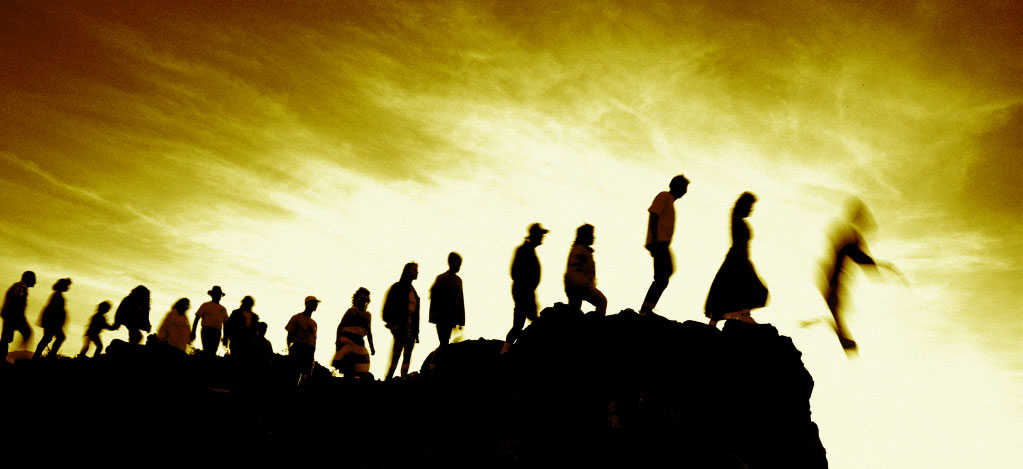http://en.wikipedia.org/wiki/Great_Leap_Forward
Consequences
Ironic considering its name, the Great Leap Forward is now widely seen, both within China and outside, as a major economic disaster, effectively being a "Great Leap Backward" that would affect China in the years to come. As inflated statistics reached planning authorities, orders were given to divert human resources into industry rather than agriculture. The official toll of excess deaths recorded in China for the years of the GLF is 14 million, but scholars have estimated the number of famine victims to be between 20 and 43 million [8].
The three years between 1959 and 1962 were known as the "Three Bitter Years" and the Three Years of Natural Disasters. Many local officials were tried and publicly executed for giving out misinformation[9].
Starting in the early 1980s, critics of the Great Leap added quantitative muscle to their arsenal. U.S. Government employee Judith Banister published what became an influential article in the China Quarterly, and since then estimates as high as 30 million deaths in the Great Leap became common in the U.S. press. However, Wim F Wertheim, emeritus professor from the University of Amsterdam, disagrees with the numbers presented on the basis that they lack scientific support.[10]. Critics of this position point to the numerous studies by individuals such as Aird in 1982, Ashton et al. in 1984, and Peng in 1987 that specifically sought to quantify the Great Leap's demographic impact. A lingering problem that all scholars point to is the assumptions regarding birth rate used in the most widely cited projections of famine deaths. These assumptions make it difficult to precisely gauge the death toll with a high degree of accuracy.
Dr Ping-ti Ho, professor of history at the University of Chicago, and an expert in Chinese Demography in a book titled "Studies on the Population of China, 1368-1953", Harvard East Asian Studies No 4, 1959, also mentioned numerous flaws in the 1953 census on which famine death projections are made, though acknowledging the lack of more accurate sources.
Critics of Jung Chang and Jon Halliday's book "Mao: The Unknown Story" often cite these studies as evidence that their body count (38 million) may be exaggerated. However, one authoritative account of the famine, a 1,100 page study by Yang Jisheng, a long time communist party member and a reporter for the official Chinese news agency Xinhua, puts the number of deaths from the Great Chinese Famine at 36 million. His book, entitled Tombstone, challenges the official Communist Party line that the famine was largely a result of "Three Years of Natural Disasters" and puts the blame squarely on Maoist policies, such as diverting agricultural workers to steel production instead of growing crops, and exporting grain at the same time.[11][12]
Yang notes that local party officials were indifferent to the large number of people dying around them, as their primary concern was the delivery of grain, which Mao wanted to use to pay back debts to the USSR totaling 1.973 billion yuan. In Xinyang, people died of starvation at the doors of grain warehouses.[13]
During the Great Leap, the Chinese economy initially grew. Iron production increased 45% in 1958 and a combined 30% over the next two years, but plummeted in 1961, and did not reach the previous 1958 level until 1964.
Despite the risks to their careers, some Communist Party members openly laid blame for the disaster at the feet of the Party leadership and took it as proof that China must rely more on education, acquiring technical expertise and applying bourgeois methods in developing the economy. Liu Shaoqi made a speech in 1962 at Seven Thousand Man's Assembly criticizing that "The economic disaster was 30% fault of nature, 70% human error."[14]
Mao stepped down as State Chairman of the PRC in 1959, predicting he would take most of the blame for the failure of the Great Leap Forward, though he did retain his position as Chairman of the Chinese Communist Party (CCP). Liu Shaoqi (the new PRC Chairman) and Deng Xiaoping (CCP General Secretary) were left in charge to execute measures to achieve economic recovery. Moreover, Mao's Great Leap Forward policy came under open criticism at a party conference at the Lushan Conference in Jiangxi. The attack was led by Minister of National Defense Peng Dehuai, who had become troubled by the potentially adverse effect Mao's policies would have on the modernization of the armed forces. Peng argued that "putting politics in command" was no substitute for economic laws and realistic economic policy; unnamed party leaders were also admonished for trying to "jump into communism in one step." After the Lushan showdown, Peng Dehuai, who allegedly had been encouraged by Nikita Khrushchev to oppose Mao, was deposed. Peng was replaced by Lin Biao.
Additionally, this loss in Mao's regime meant that Mao became a "dead ancestor," as he labeled himself: a person who was respected but never consulted, occupying the political background of the Party. Furthermore, he also stopped appearing in public. All of this he later regretted, as he relaunched his Cult of Personality with the Great Yangtze Swim.
In agrarian policy, the failures of food supply during the Great Leap were met by a gradual de-collectivization in the 1960s that foreshadowed further de-collectivization under Deng Xiaoping. Political scientist Meredith Jung-En Woo argues: "Unquestionably the regime failed to respond in time to save the lives of millions of peasants, but when it did respond, it ultimately transformed the livelihoods of several hundred million peasants (modestly in the early 1960s, but permanently after Deng Xiaoping's reforms subsequent to 1978.)"[15]
After the death of Mao and the start of Chinese economic reform under Deng Xiaoping, the tendency within the Chinese government was to see the Great Leap Forward as a major economic disaster and to attribute it to the cult of personality under Mao Zedong, and to regard it as one of the serious errors he made after the founding of the PRC.


